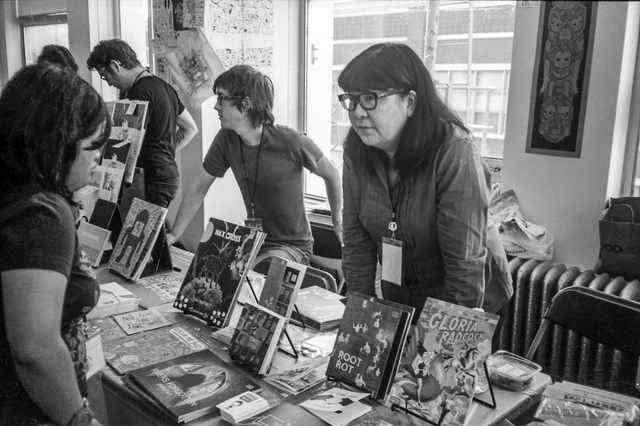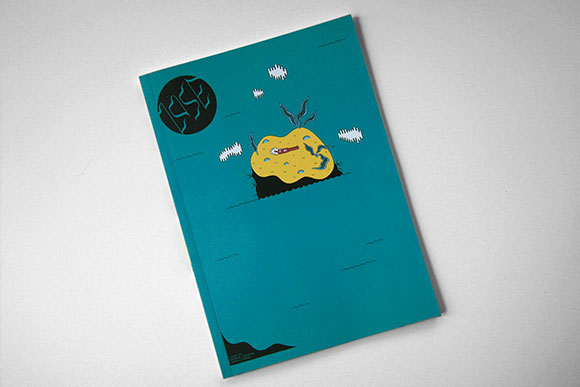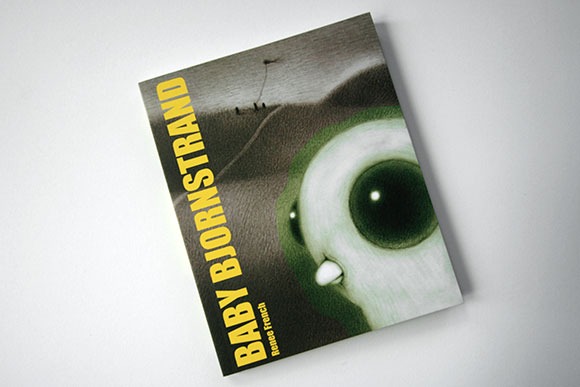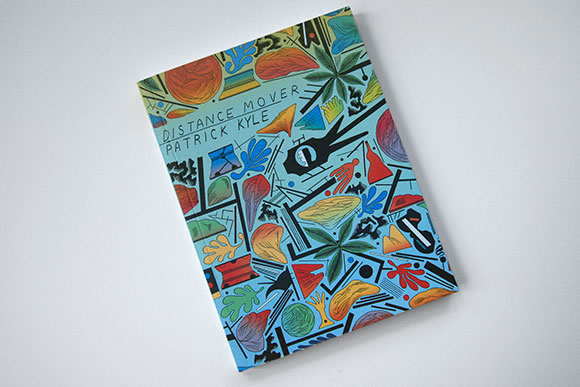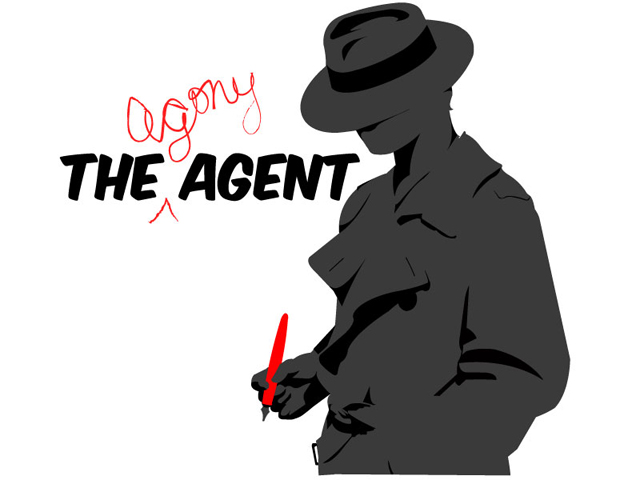Resident comics expert Anne Ishii hangs out with kickass Toronto-based comics publisher Annie Koyama.
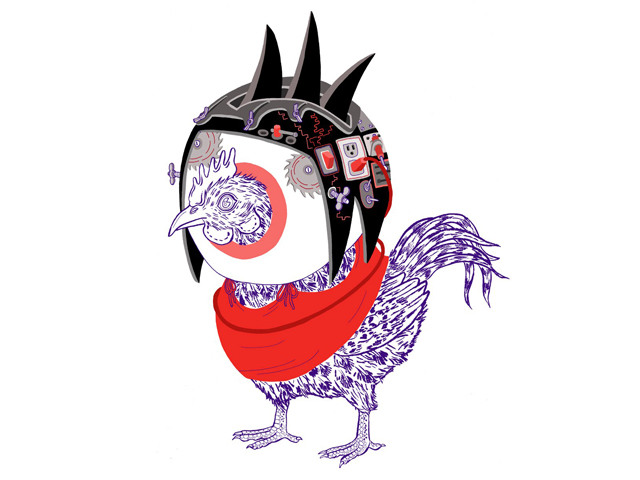
August 19, 2014
AAWW board member and resident comics expert Anne Ishii kicks off her new series of conversations with Asian American comics artists in The Margins with the Asian Canadian scene. Check back for more.
I was at a party in Toronto in conjunction with the Toronto Comic Arts Festival, when a woman came up to me with expectant eyes and excused herself before asking me, “Are you Annie Koyama?” I guffawed and answered, “I wish.” Suffice it to say Annie Koyama is a sort of super hero in publishing.
Those who know Koyama—which is likely everyone in independent comics—may be more apt to recognize her cartoon avatars, commissions of famous comics illustrators. The real Annie Koyama’s story is less believable than the most extreme of these exegetic deformations. The busy-as-a-cartoon publisher/mentor took the exactly 20 minutes of free time she had between events at the most recent TCAF to chat with me about her career and her mission at Toronto-based Koyama Press.
Anne Ishii: Can you tell me about why you started publishing?
Annie Koyama: I started sort of by accident. My background is actually in film, not publishing, but I got sick, and was unable to work for a long time. I had been working in advertising and making a good deal of money so while I was sick I played the stock market. Then I got better, and I didn’t want to go back into the world of film, so I thought I would sponsor some local artists for projects and it sort of morphed from there organically into doing a book with three illustrators in Toronto. Then, I just figured it out and kept on going. I wanted to do art books initially, but the stores that sold them here went out of business, so I went over to the comics side, because we’re seeing more fabulous work that way. Here I am seven years later still doing it and loving it.
Wow. So when you say sponsoring artists…
I would fund a project for them. It could be letterpress print, it could be a zine. You know, it could be like an art show that had several parts. I did that with a street art thing. Then, the idea was that the artist would have a product to sell. Whatever we made they could keep the proceeds, because it’s hard to make a living here, being an artist. That was my first motivation.
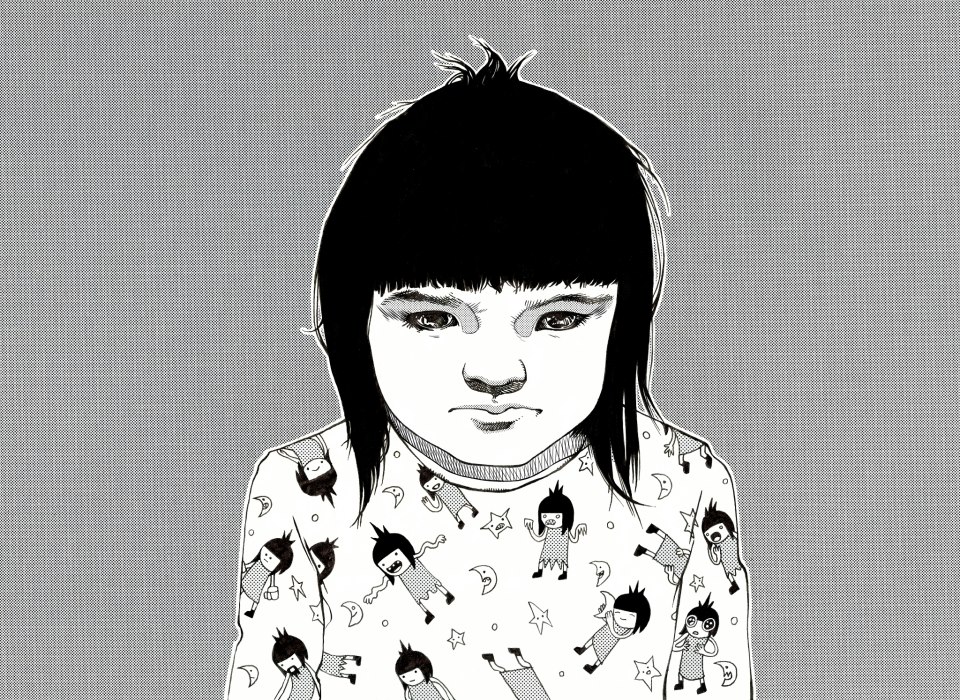
I understand it’s important to support starving artists, but why art books, or books in general?
Only because that’s what I love. I love to look at books, I love art, so that was a no brainer to me. It certainly wasn’t a conscious decision. It organically morphed into this. It was totally accidental.
And, how do you choose the artist that you sponsor?
It’s really simple. I go online and look at their work. If I like the work, I pursue the artist.
I imagine you get a lot of people knocking at your door.
I have, yes, over the last couple of years, but when you’re only doing 8-10 books a year, I have no trouble finding the people I want to work with. Of course, I’d love to work with way more but I like the size of the company the way we are now, so…
And, you know… you don’t have to tell me the numbers or anything, but is this solvent?
It’s yeah. It’s getting that way. I mean, one day I’ll get paid… Maybe. (Laughs)
Girrrl, tell me about it.
But.. nobody makes a lot in comics.
Which is why that’s so noble. I mean publishing isn’t even just a labor of love, but almost a humanitarian service at this point according to some.
You have to love it because it’s hard. You know, I think that the people who are in it are in it precisely because it’s hard, and they go away sometimes because they’re tired after a while—understandably.
I don’t know if you saw on Facebook recently, Derek Kirk Kim announced he’s not doing original comics anymore.
Yeah I know I saw that. It was sad. I hope he’ll change his mind. I think you just get burned out sometimes and you know, not every book you’re going to do is going to be as popular as your last, so when I saw that, I thought, “you know what, you have way more work in you. I hope you just take a break and come back fresh.” But I can see how all those things would conspire to make you think, “should I really continue this?” Most of the people with whom I work have day jobs because you can’t make enough money doing this.
What are you finding as a mentor and sponsor is the most beneficial thing for an artist to have? Besides maybe money. But like, to create?
Supportive communities certainly help. The first thing is, some kind of financial stability so you can do it. So, this may sound odd, but many of us have jobs we didn’t love over the years, that afforded us the ability to do the things we did want to do, so that’s just the case for some of us. Some people choose a job that’s not conflicting in any way, on purpose; a job that doesn’t require that they use their brain in any way. And they’re fresh to use their brain at night and on weekends. You know, different things work for different people.
Yeah. What kind of work mode are you in usually? Are you type A or are you relaxed?
I have to be Type A to do this. Until last year I was working 24/7 for 6 years until I hired Ed to help me. I probably should have hired him earlier. (Laughs) But I couldn’t afford it.
So your first hire was last year?
Yeah. Last March.
That’s insane! So you’ve been doing it alone for the last six years.
But, every single day of the week! So yeah, I’m tired. I’m not 20. You do burn out after a while.
OK, so… the Asian work ethic… it’s a stereotype obviously but do you feel like that plays into…
You know… we’re third generation, so…
(Laughs)
I was one of six kids, so I liked to work. But also, I wasn’t able to work because of illness for ten years!
Right.
So now I feel like yay, I get to catch up! I was ill, so really, how I started this was that I almost died. And when I survived, I wanted to do something I loved, because I wasn’t going to go back to a job that I didn’t like, no matter how lucrative it was. So, I have that time thing going.
How are you feeling now?
I’m fine, but I had another aneurysm. And that one is not operable so there’s always this thing that’s keeping me running around, because I want to get stuff done… But I like to work. I enjoy working. I’ve always enjoyed working, but you know, never more than when you have a job you love. There aren’t a lot of days I get up in the morning and I’m not excited about coming to work.
It’s a kind of positive nihilism.
Totally. Absolutely. You know, I live in a certain amount of denial about the economy, too. Is our market ever going to grow? What’s happening in the future? Are people going to buy print books? Are they going to keep it? Because I love the print book. I always wanted it to be more about that.
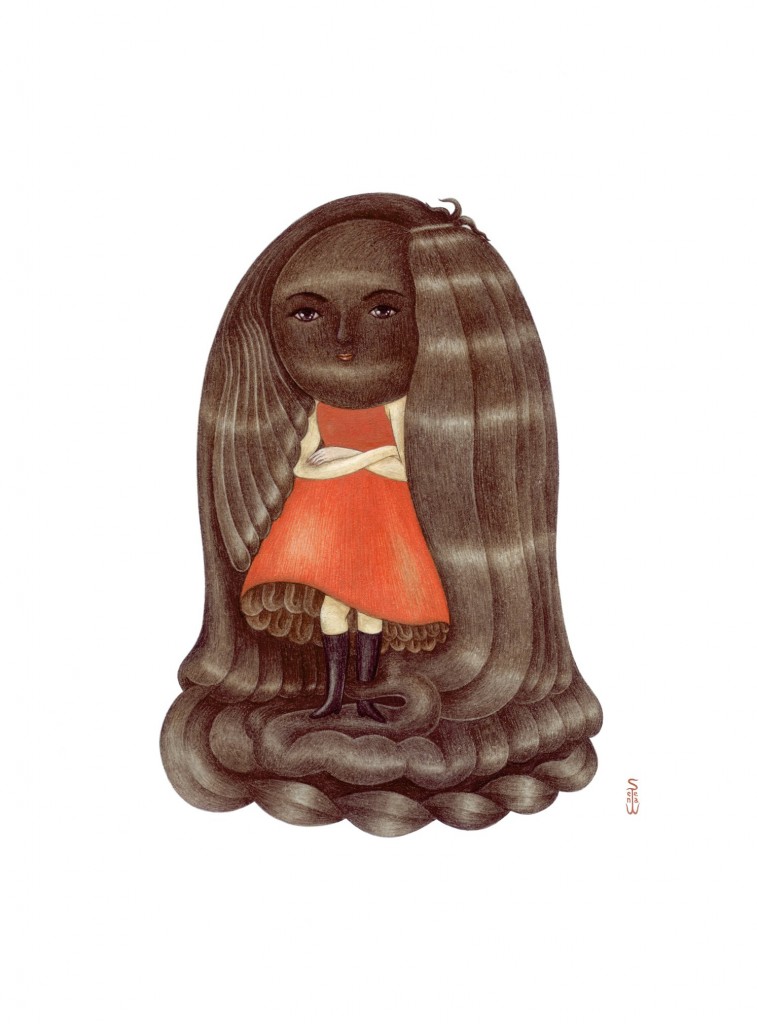
So not so much digital?
I think it’s a good compliment and I’m about to go that way for some stuff, but it’s… I held out for a long time because I didn’t like the resolution that I was seeing. And personally, it comes down to the fact that I would rather read a paper book. It’s not that I have anything against reading web comics or anything but I spend so much time on my computer already. I don’t want to spend any leisure time I have again, doing that. It’s a personal thing.
Switching gears a little bit. Do you feel like, in the context of comics, being from Canada and Toronto at this moment changes or identifies you in a different way?
I don’t know if it changes anything. Certainly I work with a lot of Canadians on purpose because I like to and there’s so much talent here, but, and in fact I just assumed I’d be doing that first. But then I met Jon Vermilyea (http://www.jonvermilyea.com/ongoing/pizza-time/) and… there’s just so much talent everywhere, and I didn’t want to limit myself, so… You know, I’m proud to be working with Canadians and I’m proud to have a Canadian company that’s becoming known everywhere now. But, do I stand out because of that? I don’t know. I’m not sure. There aren’t a lot of publishers. Especially in our little world.
What about your own mentors? Who do you credit with helping you start Koyama Press, and who gives you guidance?
Chris Pitzer was really helpful to me in the beginning because he offered to sell my stuff in the U.S. because the biggest dilemma for me was how to get books out there. If you don’t have enough a big distributor won’t take you on. So, he was wonderful because even though I want to learn stuff by myself (often by trial and error), he offered assistance. He said I could call him anytime. I actually didn’t take him up on that very much, but it was nice to know there was somebody offering that. I find the community’s pretty open that way. I just like to bumble through and find my own way. Because I started without any preconception, I could do whatever I want. I could do saddle-stitched books that nobody was making. They don’t make any money but it’s a format I grew up with so I wanted to do it and I would still like to do more.
What about obstacles?
Obstacles… the biggest one was getting big distribution. You need a certain amount of titles, they need to be a certain format, certain kind of book, and I didn’t have that for a long time. In between that I was studying art projects and things, so it took longer to get to the point where I had enough to show, but it’s nice having that now. It’s nice to change it up.
I hate to sound morbid but I wonder if you were not sick, if you would have started your press. What do you think?
Probably not. I know I wouldn’t have stayed in advertising, but I might have maybe have considered going back to documentary. That was my first love. In film. Then again, at a certain age, you don’t want to be poor. And if you think comics people are poor, documentary people are really poor. Again, you’re doing it because you love it and there are great stories out there.
It’s ironic that your background is in filmmaking and advertising because those are both businesses where the model is to find a client or a benefactor or producer, somebody that funds… I mean there’s no profit model in an of itself. It’s sort of… you know with advertising somebody is paying you to do a service. In documentary… nobody goes into documentary filmmaking thinking that they’re going to make money organically.
Oh no. you’d be nuts. You won’t stay long if that’s the case. You spend all your time writing grants, and hitting up corporate sponsors, and that was a long time ago so I can only imagine it’s even harder now.
I’m thinking from the point of view of the artist that comes into Koyama Press, but this is probably your first generative business, right? There is a clear profit model and…
There is. However, because for the first five or six years I gave all the proceeds except for the shipping costs to my artists, I didn’t really operate profitably. It worked as an unofficial non-profit until a couple of years ago, and that money has gone out, so I’ve had to work a more traditional model. I now have to work more traditionally also because I have a major distributor. Not a bad thing. Just different.
That is absurdly generous.
You know, I made a lot of money on the market and I don’t come from money, so I was happy to give it away. It’s very rewarding.
I’m sure you hear it a lot, but it’s a very unusual relationship you have with money.
Well, maybe because I don’t come from money. I don’t know. I was fortunate, I was lucky. You can play the stock market, and if the times were right like they were in the 80s… I don’t know how anyone wouldn’t make money, then. But I don’t know. I wouldn’t tell people to do it now but you get well paid in advertising so, the thing is just that now I don’t need a lot.
That’s insane.
You know, when I started I didn’t think I would be doing that for six years.
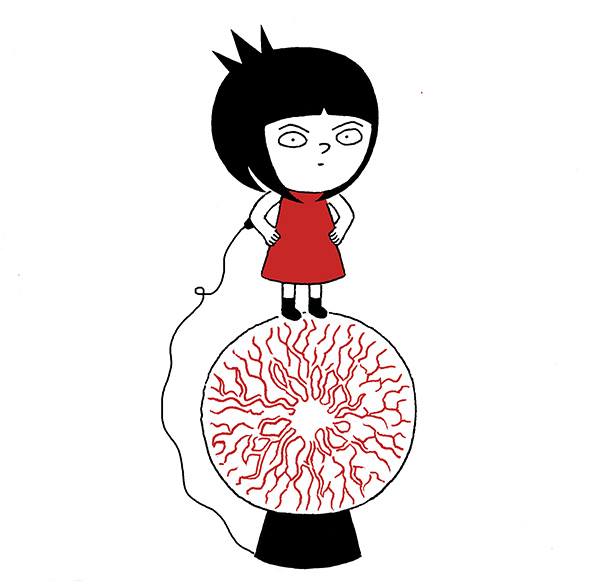
What did you want to be when you were little?
I am just one of those kids who never knew. I wanted to do languages. I studied criminology. I wanted to do social work. I did some volunteer probation work with young boys.
Sounds exactly like comics.
(Laughs.) Same pay… But it was too emotionally draining. I don’t know how people do it. I mean I know how they do it. They just train themselves not to take it home at night, but I’m too spongey. I can’t do that. So, that wasn’t for me. Well, I’ve tried it. My hat is off to people who can do it well. I like people. I get to work with people. I love books. I get to do that every day. I get to travel a little bit. It’s a pretty cool community.
Definitely. In Canada, the comics scene is so rich and I feel like it’s nice that it gets to exist outside of that weird Hollywood ecosystem.
Sure. But the bad part is we don’t get any of that money.
I might have this totally wrong but it may be easier (read: cheaper) to live life in Canada, right? I mean the system is setup a little bit more equitably.
Totally. I mean healthcare! If what happened to me had happened in the U.S. I’d be paying for that surgery for the rest of my life!
You’re absolutely right. I just read on the Social Welfare Progress Report that America ranked somewhere between Albania and Iraq on the Health Index, like 78th out of a 100 or something.
That’s terrible. Really terrible.
Yeah US healthcare is really awful but that’s like a whole other conversation. Switching back gears: creative trends. What are you seeing? What’s your direction?
I’d like to say I have a plan like that. But I like to see the work determine where I’m going. I’m careful about not putting out two books that are too similar together at the same time. But aside from that, I don’t follow trends. I’m pretty sure I’m not going to be doing superhero stuff. There are some wonderful people who are doing that kind of work and I’d love to work with them on something that’s more my style.
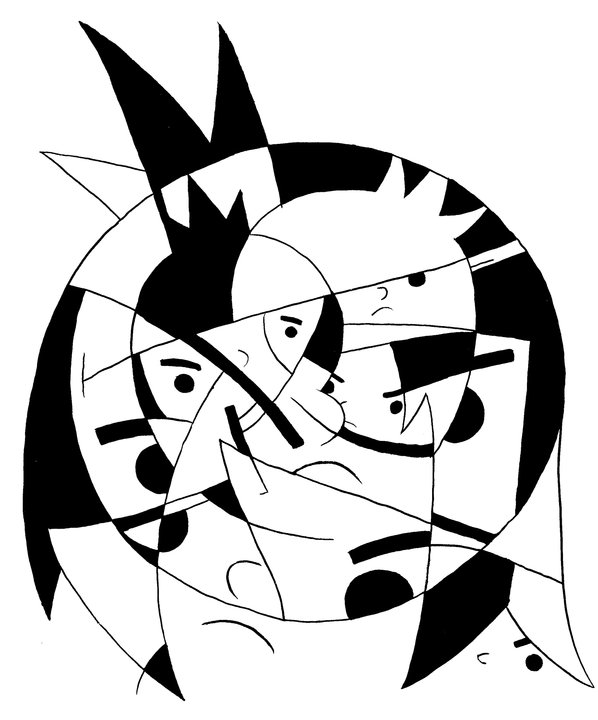
Any new totally different things that you’re going to be doing?
Yes! Kids stuff! I had a couple of coloring books, and a kids comic years ago. But, I’m making a concerted effort to make kids comics because I want comics for people who buy our adult books. I want those kids to grow up reading those things and then go on and buy a Michael DeForge book. When I look at kids comics out there, there’s a lot of stuff, but there is certainly room for more. I got Britt Wilson here at the show. She’s doing one for John Martz for September. I’m really excited for them. They’re doing a lot of events here.
So is it like a big shopping trip for you then, TCAF? Do you check out new artists and see what’s going on?
I follow many many of these people online, so I’m pretty savvy about what’s coming. I know fairly well what I’m going to target. But you can always discover new things. That’s the fun part.
Internet discovery. That’s your ball of wax?
I don’t sleep a lot. So late at night is when I’m looking up Tumblrs. I just got insomnia a few years ago, so I’d rather be working if I can’t be sleeping.
It’s like you’re genetically coded to become a publisher of obscure art. I mean seriously, they couldn’t have designed you better.
